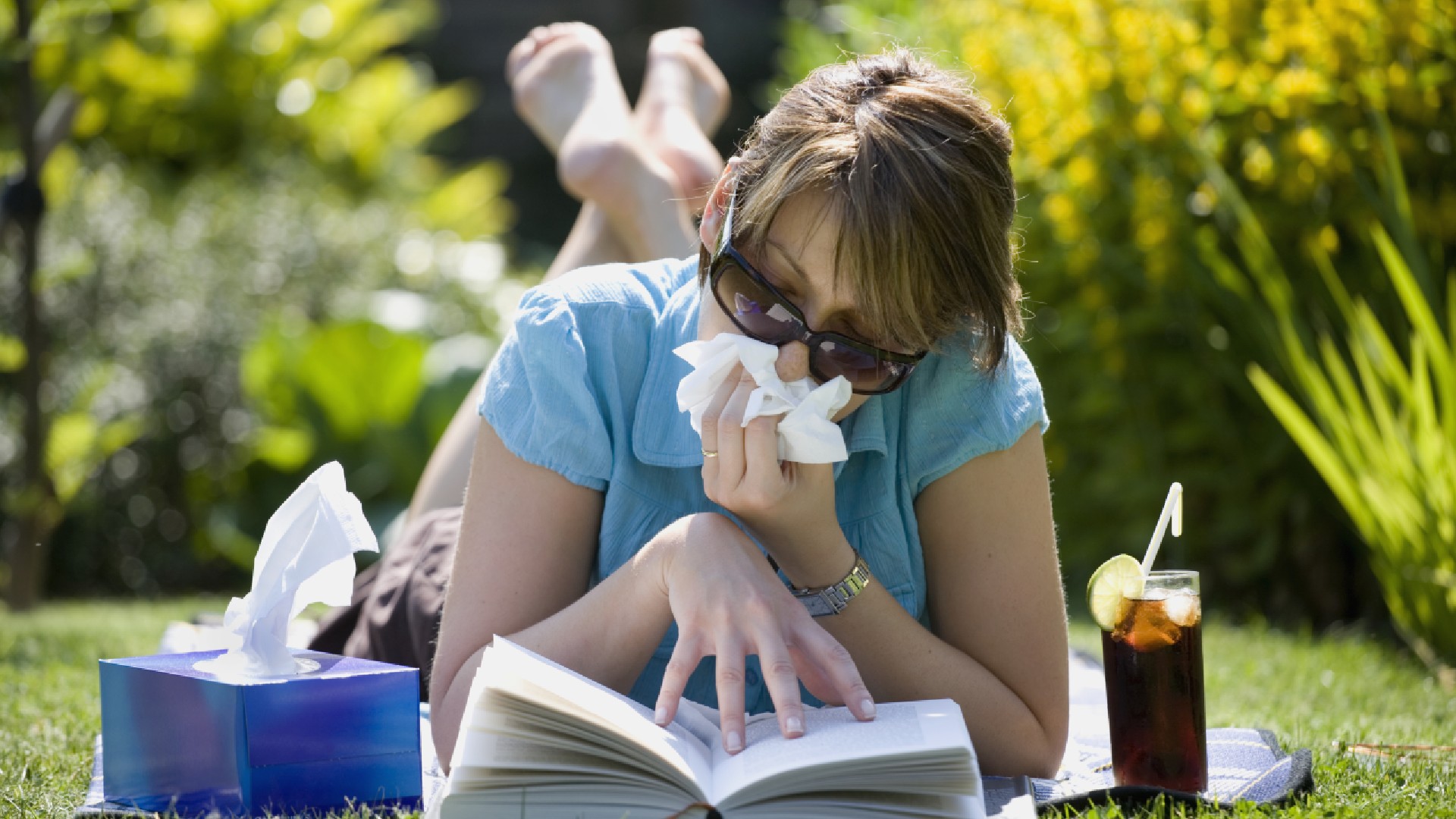What happens when you take antihistamines? GPs share 5 possible effects
From allergy relief to reduced eye bags, these meds might help with more than you expect

Sign up to our free daily email for the latest royal and entertainment news, interesting opinion, expert advice on styling and beauty trends, and no-nonsense guides to the health and wellness questions you want answered.
You are now subscribed
Your newsletter sign-up was successful
Want to add more newsletters?

Daily (Mon-Sun)
woman&home Daily
Get all the latest beauty, fashion, home, health and wellbeing advice and trends, plus all the latest celebrity news and more.

Monthly
woman&home Royal Report
Get all the latest news from the Palace, including in-depth analysis, the best in royal fashion, and upcoming events from our royal experts.

Monthly
woman&home Book Club
Foster your love of reading with our all-new online book club, filled with editor picks, author insights and much more.

Monthly
woman&home Cosmic Report
Astrologer Kirsty Gallagher explores key astrological transits and themes, meditations, practices and crystals to help navigate the weeks ahead.
With warmer days and gardens in full bloom, spring brings joy to many. But for others, it leads to irritating and sometimes debilitating symptoms as allergy season ramps up.
Over a quarter of Brits are thought to suffer from hay fever, and while there are plenty of hay fever cough remedies and natural hay fever remedies you can try, many pop an antihistamine tablet to help with itchy eyes, streaming noses, coughs and headaches.
These over-the-counter drugs work, but there are side effects. Here’s what you need to know.
1. They can stop you feeling sick
Antihistamines can help with different allergies, and they can also ease nausea, vomiting and may be used to treat conditions that affect balance like vertigo.
"Certain types, such as meclizine, work on the brain’s balance centre, calming the signals that make you feel dizzy," explains GP Dr Ramit Singh Sambyal from ClinicSpots.
2. Insomnia might be cured
"Some antihistamines can cause drowsiness. By blocking histamine in the brain, they 'dial down' the body’s alertness system and interfere with our ability to regulate wakefulness," says Dr Sambyal.
"But it’s not great for long-term use, as your body can develop tolerance," he warns. Rather, check our list of 13 expert ideas on how to sleep better, to see what you could tweak in your daily routine if you're struggling with sleep.
Sign up to our free daily email for the latest royal and entertainment news, interesting opinion, expert advice on styling and beauty trends, and no-nonsense guides to the health and wellness questions you want answered.

3. You may look younger
"Allergies can cause inflammation, leading to swelling under the eyes. Antihistamines can help reduce this," says Dr Lee.
Some people who take one 24-hour antihistamine before bed say that within two to four weeks the skin around their eyes looks tighter, but talk to your GP first.
4. Prolonged use could raise risk of dementia
"First-generation antihistamines, in particular, have anticholinergic effects , which means they block a neurotransmitter, which is important for learning," says Dr Sambyal.
"As a result, over time, regular use has been linked to cognitive decline and an increased risk of dementia. This is why I always recommend second-generation options, such as fexofenadine or loratadine, for frequent use."
Speak to your doctor for advice.
5. Constipation may be an issue
The neurotransmitter that gets blocked also plays a crucial role in other bodily functions, including muscle contractions in the digestive system.
"This means antihistamines can lead to constipation. They can also affect gut health and cause dry mouth, so drink at least two litres of water a day, eat plenty of fibre and keep active to maintain good bowel function," says Dr Deborah Lee from DrFox.
How to take antihistamines safely
Always follow the instructions on the label or from your pharmacist or GP. If taking the type that might make you drowsy (the label should indicate this), avoid driving and limit alcohol intake.
Also be aware that some antihistamines can make you more sensitive to the sun, meaning you may burn more easily, so don’t forget the SPF.
Dr Ramit Singh Sambyal is a an emergency consultant at Max Smart, Delhi, and Rxpert Clinic as Consultant and at Safdarjung Enclave, Delhi. He completed his MBBS from Government Medical College in Jammu, Masters in Emergency Medicine - George Washington University School of Medicine and Health Sciences, 2018, and was a consultant at Moolchand Medicity in Delhi.
Dr Deborah Lee is a sexual and reproductive health specialist, working with all areas of gynaecological health. She also set up and ran her own menopause clinic. Dr Lee completed her medical degree at University of Southampton Medical School, trained as a GP and after a number of years specialised in Sexual & Reproductive Health (S&RH).

This article first appeared in the May 2025 issue of woman&home magazine. Subscribe to the magazine for £6 for 6 issues.
This article is for general interest and is not intended to suggest a course of action that might be suitable for you. Always consult a licensed healthcare professional before making decisions concerning your health and wellbeing.
With over two decades of magazine and digital experience, Samantha has extensive knowledge of writing about menopause, Minecraft - and pretty much everything in between. With roots in pop culture and celebrity journalism, she has interviewed top talent and written features for a wide range of outlets including ELLE, The Guardian, Stylist, Grazia, The Sun’s Fabulous, Psychologies and, more recently, woman&home.